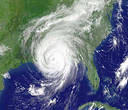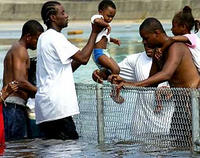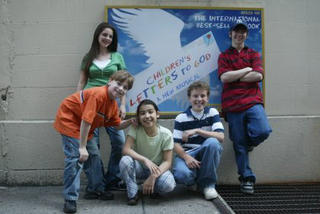Hurricane Katrina
By Seth Lowe
She has been estimated to be the most costly natural disaster in United States history; she is also the deadliest hurricane to ever hit American soil since Hurricane Camille in 1969, and she is the third major hurricane of the 2005 Atlantic hurricane season. Her name is Katrina.
 Hurricane Katrina was a major tropical cyclone wreaking havoc on the southeastern U.S. States with significant damage in southern Florida, the western Florida Panhandle, Louisiana (mainly New Orleans), southern and central Mississippi, southern Alabama, western Georgia, and the Tennessee Valley. As of August 31, 2005 the death toll was up to an astounding 135, not far from Camille’s record of 256; at the time of its Louisiana landfall, it made it the third most intense system to strike the United States in recorded history.
Hurricane Katrina was a major tropical cyclone wreaking havoc on the southeastern U.S. States with significant damage in southern Florida, the western Florida Panhandle, Louisiana (mainly New Orleans), southern and central Mississippi, southern Alabama, western Georgia, and the Tennessee Valley. As of August 31, 2005 the death toll was up to an astounding 135, not far from Camille’s record of 256; at the time of its Louisiana landfall, it made it the third most intense system to strike the United States in recorded history.After striking southern Florida, the system regained strength in the Gulf of Mexico, then becoming a Category 5 hurricane with wind speeds of 175 mph and wind gusts over 200 mph. The system turned northward and weakened slightly just before making its second landfall near Grand Isle, Louisiana on Aug. 29 as a Category 4 hurricane with winds of 150 mph. Her final landfall was made at the Louisiana-Mississippi border.
Damage costs from Katrina have surpassed the millions and are racking up in the billions. AIR Worldwide Corp., a risk assessment firm in Boston, estimated insured losses at $17 billion to $25 billion. Risk Management Solutions of California estimated $10 billion to $25 billion. Not only is the damage toll unknown, but the body count is also unknown. New Orleans mayor Ray Nagin has estimated over 10,000 deaths in his city alone; and a reported 100 deaths in Mississippi.

WVUP President Dr. Gnage has challenged other area colleges to help raise money for hurricane victims. Many people need help. They need clothes, money, and much more. If anyone would like to make a donation, here are some places to contact:
To donate cash to or volunteer with the Salvation Army:
1-800-SAL-ARMY (725-2769)
http://www.salvationarmyusa.org/USNSAHome.htm
American Red Cross
1-800-HELP NOW (435-7669) English,
1-800-257-7575 Spanish;
http://www.redcross.org/
For housing relief:
http://www.hurricanehousing.org/
http://www.homesforkatrina.org/
For hunger relief:
Operation Blessing
1-800-436-6348
http://www.ob.org/
America’s Second Harvest
1-800-344-8070
http://www.secondharvest.org/
For further information:
visit the website for the National Voluntary Organizations Active in Disaster (NVOAD) at: http://www.nvoad.org/.







